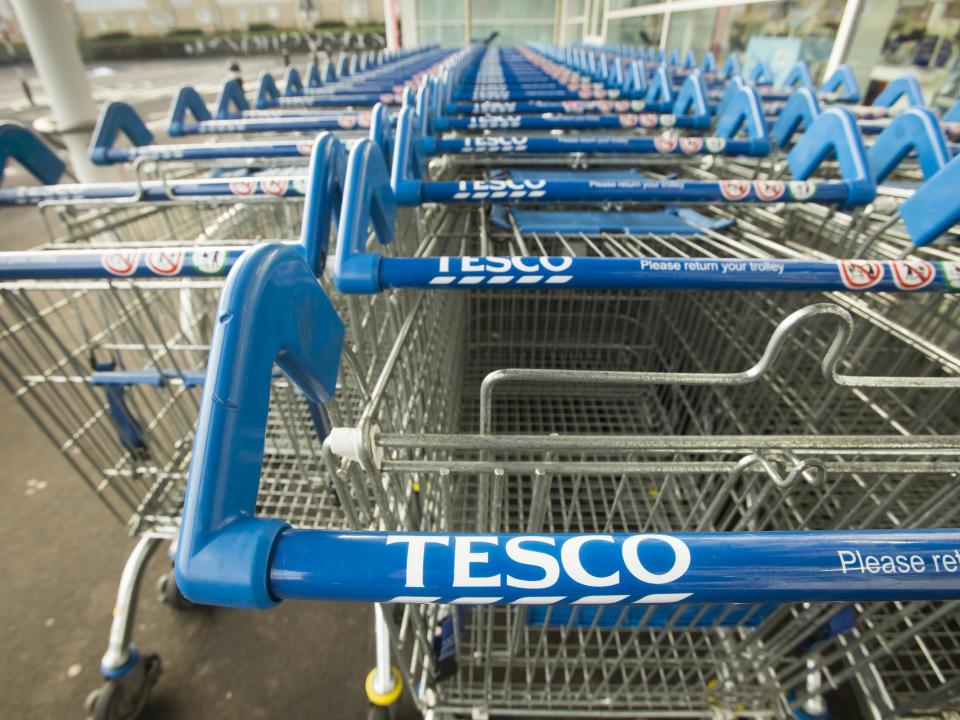Tesco just bought its way out of a legal case. Clearly the economic elite play by a different set of rules than the rest of us

Imagine you rob a bank. The police catch up with you. But taking inspiration from Donald Trump you suggest a “deal”. You say: “Instead of prosecuting me for breaking the law, how about I pay a fine and promise not to do it again?” How far would that get you?
Now imagine you own a bank which is caught defrauding customers in order to inflate your profits. The Serious Fraud Office (SFO) knocks on your door. But you have a nice deal for them: “Instead of you prosecuting us for breaking the law, how about I pay a fine and promise not to do it again?”
Would that wash? Well quite possibly it might. Because we now have “Deferred Prosecution Agreements” (DPA) for UK corporations which enable firms to do precisely that: buy their way out of criminal prosecution.
Tesco has just agreed one today with the SFO. The supermarket will pay £128m in exchange for avoiding prosecution for its false accounting in 2014. Rolls Royce also concluded a DPA in January worth £497m to settle claims of extensive overseas bribery by employees of the multinational engineering giant.
The justification for offering DPAs is to save public money in the administration of justice. When they were introduced in 2013, ministers claimed they would financially incentivise companies under investigation to co-operate with the authorities.
Thus, they could avoid the public expense of a long and complex trial and, in particular, the risk that big firms with access to expensive legal advice would get off, perhaps on a technicality.
The DPA’s fines are supposed to act as a deterrent to future wrongdoing by companies. Shareholders are expected to police management more carefully. But while £128m might sound like a lot of money to most people it’s less than 0.3 per cent of Tesco’s total 2016 operating expenses of £53.6bn. As recently as 2014 Tesco was making annual profits of more than £2bn.
Even Rolls-Royce’s larger fine represented only 3 per cent of its 2016 operating costs. And the fine will be payable over four years. Tellingly, Rolls’ share price spiked by more than 4 per cent on the day the DPA was announced. “We see their commercial value to companies under suspicion” admits the head of bribery at the SFO.
It’s important to note that judge Brian Leveson, when he signed off on the Rolls-Royce DPA, stressed that it did not mean that the door had been closed on future criminal charges for ex-managers at the company. We shall see, though it’s notable that in America, from where the concept of DPAs was imported, few executives from the many companies that have used them have ended up facing prosecution, let alone jail time.
There is room for practicality in the application of the law. In magistrates courts the prosecutor and the defence can agree that a defendant will plead guilty to one charge on the understanding that the prosecutor will drop the remainder. That also saves public money. Yet such plea bargaining only takes place well after the prosecution is underway. There’s no option for an offender to effectively buy themselves out of the system before the wheels of justice properly start turning.
The wider social and political context is relevant. As even regulators complain, no senior UK banker has been prosecuted for the concatenation of fraud and malfeasance that took place in the years leading up to the 2008 financial crisis, a disaster that imposed a severe toll on the living standards of every person in Britain.
The remuneration of senior executives of large UK firms has soared while average wages have been stagnant for years. A populist firestorm is raging across much of the Western world, partly fuelled by a sense that an economic elite play by a different set of rules from everyone else. Special legal privileges for law-breaking corporations send the deeply unfortunate message that there’s something to that belief.

 Yahoo News
Yahoo News 